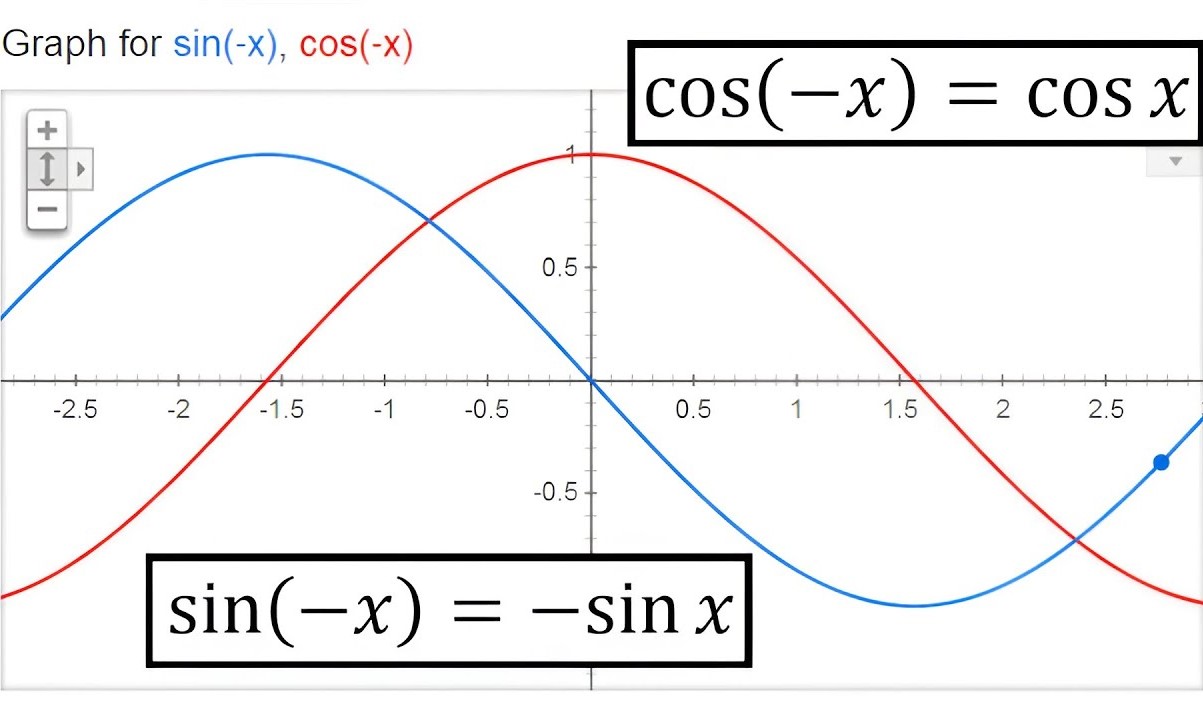Home>Literature>The Shocking Irony In ‘The Story Of An Hour’ That Will Leave You Speechless!


Literature
The Shocking Irony In ‘The Story Of An Hour’ That Will Leave You Speechless!
Published: January 5, 2024
Discover the shocking irony in 'The Story of an Hour' that will leave you speechless! Explore the captivating literary analysis and unravel the hidden depths of this classic tale. Unlock the power of literature today.
(Many of the links in this article redirect to a specific reviewed product. Your purchase of these products through affiliate links helps to generate commission for Noodls.com, at no extra cost. Learn more)
Table of Contents
Introduction
"The Story of an Hour" by Kate Chopin is a captivating and thought-provoking short story that has enthralled readers for generations. Set in the late 19th century, the narrative unfolds with a sense of restraint and societal expectations, yet it delves deep into the complexities of human emotions and the yearning for freedom. The story's enduring appeal lies in its ability to resonate with readers on a profound level, as it explores themes of liberation, identity, and the unexpected turns of fate.
In this article, we will delve into the profound themes and the shocking irony that underpins the narrative of "The Story of an Hour." As we unravel the layers of this timeless literary piece, we will uncover the subtle nuances that make it a compelling exploration of the human experience. From the initial exposition to the unforeseen twist in the plot, this article will guide you through the enthralling journey that "The Story of an Hour" offers. Get ready to be captivated by the profound insights and the unexpected revelation that awaits in this literary gem.
Summary of "The Story of an Hour"
"The Story of an Hour" by Kate Chopin is a poignant narrative that centers on the emotional journey of Louise Mallard, a woman who receives the shocking news of her husband's sudden death in a railroad accident. Initially overwhelmed by grief, Louise seeks solace in solitude, retreating to her room to process the overwhelming wave of emotions that engulf her. As she gazes through the window, she is captivated by the newfound sense of liberation that begins to unfurl within her.
The story unfolds against the backdrop of societal norms and the stifling constraints imposed on women during the late 19th century. Louise, despite her sorrow, experiences a surge of conflicting emotions that challenge the conventional expectations placed upon her. Her introspective moments lead her to contemplate the prospect of a life free from the shackles of marriage, a life where she can embrace her individuality and autonomy.
As the narrative progresses, Louise's inner turmoil gives way to a profound realization. She acknowledges the unexpected stirrings of joy and freedom within her, recognizing the possibility of shaping her own destiny. This revelation marks a pivotal moment in the story, as it unveils the depth of Louise's yearning for independence and self-fulfillment.
However, the story takes a startling turn when Louise's husband, Brently Mallard, unexpectedly returns home, having been nowhere near the scene of the reported accident. The shock of his sudden appearance proves to be too much for Louise to bear, and in a tragic twist, she succumbs to a fatal heart attack. The narrative culminates in a shattering revelation, as the characters and readers alike are confronted with the devastating consequences of societal oppression and the profound irony that underscores Louise's fleeting glimpse of freedom.
The summary of "The Story of an Hour" encapsulates the emotional and psychological journey of the protagonist, offering a poignant exploration of the complexities of human experience and the unforeseen twists of fate. Through its evocative storytelling, the narrative prompts readers to contemplate the profound implications of societal expectations and the intrinsic human desire for autonomy and self-discovery.
The Theme of Freedom and Oppression
The theme of freedom and oppression lies at the heart of "The Story of an Hour," permeating the narrative with profound implications for the protagonist, Louise Mallard. Set against the backdrop of the late 19th century, the story illuminates the societal constraints and gender norms that confine women to predefined roles and expectations. Louise's emotional journey serves as a poignant reflection of the struggle for autonomy and self-expression within a rigidly structured society.
The concept of freedom emerges as a central motif, juxtaposed against the suffocating oppression that characterizes Louise's existence. Upon learning of her husband's reported death, a tumult of emotions engulfs her, initially manifesting as overwhelming grief. However, amidst the waves of sorrow, a subtle undercurrent of liberation begins to permeate her consciousness. This pivotal moment marks the inception of Louise's inner turmoil, as she grapples with the conflicting desires for independence and the societal pressures that seek to confine her within the confines of traditional marital expectations.
As she retreats to her room, Louise is engulfed by a profound sense of solitude, offering her a rare opportunity for introspection. It is within this private sanctuary that she confronts the complexities of her emotions, allowing herself to entertain the prospect of a life unfettered by the constraints of marriage. The narrative skillfully captures the internal conflict that arises as Louise contemplates the newfound sense of freedom that beckons to her, juxtaposed against the societal norms that seek to suppress her individuality.
The theme of oppression manifests through the societal expectations that weigh heavily upon Louise, dictating her role as a dutiful wife and relegating her aspirations to the periphery of her existence. The stifling nature of these expectations becomes palpable as Louise grapples with the conflicting emotions that surge within her. Her yearning for autonomy and self-expression stands in stark contrast to the societal confines that seek to confine her within the prescribed roles of wife and caretaker.
The juxtaposition of freedom and oppression unfolds with poignant clarity, underscoring the profound complexities of Louise's emotional landscape. Through the lens of this theme, the narrative invites readers to contemplate the enduring struggle for autonomy and self-fulfillment, transcending the confines of societal expectations. The evocative portrayal of Louise's internal conflict serves as a compelling testament to the universal yearning for freedom and the profound ramifications of societal oppression.
In "The Story of an Hour," the theme of freedom and oppression resonates as a timeless exploration of the human spirit's indomitable quest for self-determination, offering a poignant portrayal of the enduring struggle for autonomy within the confines of societal expectations.
The Shocking Twist in the Plot
The narrative of "The Story of an Hour" takes a compelling turn with the introduction of a shocking twist that reverberates with profound implications. As Louise Mallard grapples with the tumultuous waves of conflicting emotions and the unexpected stirrings of freedom, the story reaches a pivotal juncture with the sudden reappearance of her husband, Brently Mallard. This unforeseen turn of events plunges the narrative into a shroud of disbelief and stark realization, unraveling the delicate fabric of Louise's fleeting glimpse of liberation.
The initial report of Brently's death had set in motion a series of tumultuous emotions within Louise, prompting her to confront the complexities of her desires and the societal expectations that sought to confine her. However, the revelation of Brently's unexpected return shatters the fragile semblance of freedom that had begun to unfurl within her. The shock of his presence pierces through the cocoon of introspection that had enveloped Louise, plunging her into a harrowing confrontation with the crushing weight of societal constraints.
The twist in the plot serves as a poignant reminder of the pervasive influence of societal norms and the profound irony that underpins Louise's yearning for autonomy. The stark juxtaposition of her fleeting liberation against the stark reality of Brently's return underscores the fragility of her newfound sense of freedom, casting a sobering light on the complexities of her emotional journey. The narrative's unexpected turn serves as a catalyst for a profound revelation, laying bare the devastating consequences of societal oppression and the inherent fragility of human aspirations.
In the wake of Brently's sudden return, the narrative unfolds with a heart-wrenching inevitability, culminating in a shattering denouement that leaves both the characters and readers reeling from the profound irony that underscores Louise's fate. The shocking twist in the plot serves as a stark reminder of the intricate interplay between societal expectations and the intrinsic human desire for autonomy, offering a sobering reflection on the unforeseen turns of fate and the poignant complexities of the human experience.
The twist in the plot of "The Story of an Hour" serves as a poignant testament to the unforeseen intricacies of human existence, weaving a narrative tapestry that resonates with profound irony and the enduring struggle for autonomy in the face of societal constraints.
The Irony of Mrs. Mallard's Fate
The irony of Mrs. Mallard's fate in "The Story of an Hour" unfolds with poignant clarity, casting a stark light on the complexities of human existence and the profound intricacies of societal expectations. As the narrative reaches its pivotal juncture, the shocking revelation of Brently Mallard's unexpected return serves as a catalyst for a shattering denouement, laying bare the devastating consequences of societal oppression and the inherent fragility of human aspirations.
At the heart of the irony lies the stark contrast between Louise Mallard's fleeting glimpse of liberation and the crushing reality of her husband's sudden reappearance. The initial report of Brently's death had prompted a tumult of conflicting emotions within Louise, leading her to confront the complexities of her desires and the societal expectations that sought to confine her. Her introspective moments had kindled a sense of burgeoning freedom, offering her a rare glimpse of autonomy and self-discovery. However, the abrupt revelation of Brently's return shatters the fragile semblance of liberation that had begun to unfurl within her.
The narrative's profound irony lies in the juxtaposition of Louise's yearning for autonomy against the stark realization of her continued subjugation within the confines of societal expectations. The shock of Brently's presence pierces through the cocoon of introspection that had enveloped Louise, plunging her into a harrowing confrontation with the suffocating weight of societal constraints. This stark revelation underscores the fragility of her newfound sense of freedom, casting a sobering light on the complexities of her emotional journey.
The devastating twist in the plot serves as a poignant reminder of the pervasive influence of societal norms and the profound irony that underpins Louise's yearning for autonomy. The narrative's unexpected turn lays bare the inherent contradictions of human existence, confronting readers with the sobering reality of the unforeseen turns of fate and the poignant complexities of the human experience.
In the wake of Brently's sudden return, the narrative unfolds with a heart-wrenching inevitability, culminating in a shattering denouement that leaves both the characters and readers reeling from the profound irony that underscores Louise's fate. The irony of Mrs. Mallard's fate emerges as a poignant testament to the unforeseen intricacies of human existence, weaving a narrative tapestry that resonates with profound irony and the enduring struggle for autonomy in the face of societal constraints.
Read more: Shocking Experiment: Attempting To Inflate A Human – What Happens Next Will Leave You Speechless!
Conclusion
In conclusion, "The Story of an Hour" stands as a timeless literary masterpiece that continues to captivate readers with its profound exploration of the human experience. Through the poignant portrayal of Louise Mallard's emotional journey, the narrative delves into the complexities of freedom, oppression, and the unforeseen twists of fate. The thematic undercurrents of autonomy, societal constraints, and the profound irony of Louise's fate resonate with enduring relevance, prompting readers to contemplate the intricate interplay between individual desires and societal expectations.
The narrative's enduring resonance lies in its ability to evoke a profound sense of introspection, inviting readers to confront the universal yearning for autonomy and self-fulfillment. The shocking twist in the plot, culminating in the revelation of Brently Mallard's unexpected return, serves as a poignant reminder of the fragile nature of human aspirations and the pervasive influence of societal norms. The stark irony that underscores Louise's fleeting glimpse of liberation confronts readers with the sobering reality of the unforeseen turns of fate and the poignant complexities of the human experience.
As the narrative unfolds, it offers a compelling reflection on the enduring struggle for autonomy within the confines of societal expectations. The juxtaposition of freedom and oppression serves as a poignant testament to the indomitable spirit's quest for self-determination, transcending the confines of societal constraints. The narrative's profound themes and the shocking irony that underpins Louise's fate leave an indelible impression, prompting readers to contemplate the intricacies of human existence and the profound implications of societal oppression.
In essence, "The Story of an Hour" stands as a timeless testament to the enduring complexities of the human spirit, offering a compelling exploration of the universal yearning for autonomy and the unforeseen twists of fate that shape the human experience. Through its evocative storytelling and profound thematic depth, the narrative continues to resonate with readers, inviting them to contemplate the enduring struggle for self-fulfillment within the intricate tapestry of societal expectations.














